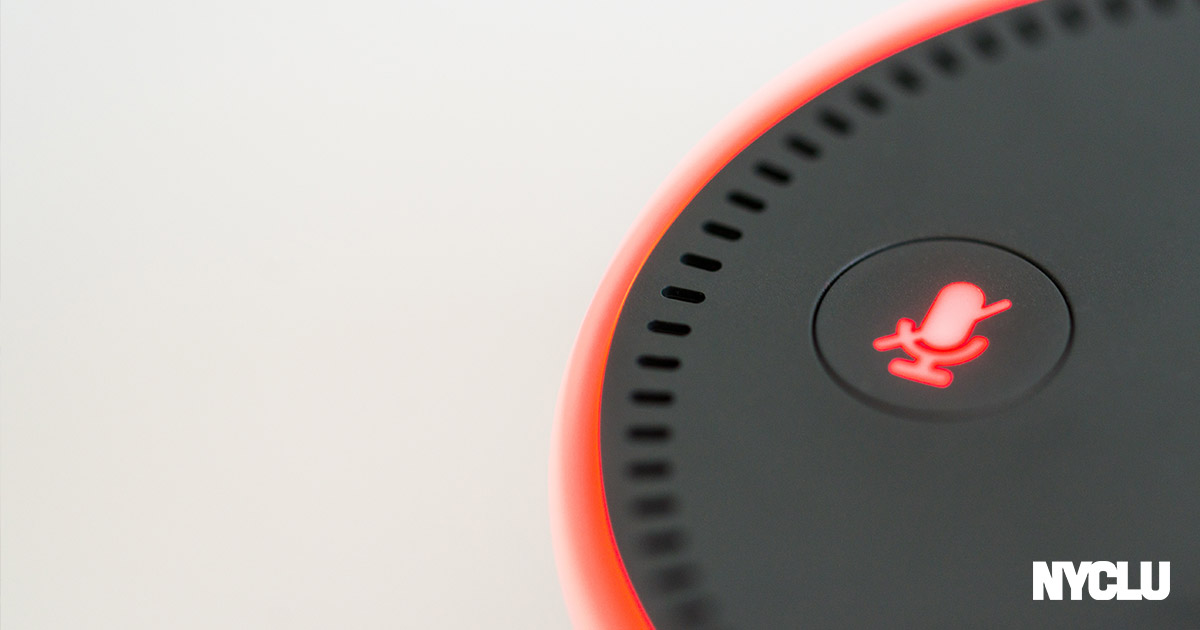Column: Constitutional Limits on Congressional Investigations Into Palestine-Israel Advocacy
Civil Liberties Union

The holiday season is upon us, and though certain tech gadgets might seem like the perfect gifts, privacy-conscious shoppers should be wary of supposedly “smart” devices.
These are far from the only pieces of consumer technology that scoop up sensitive information about us, but they should give you an idea of the types of devices to avoid.
We also provide a couple of ways to give the gift of privacy to yourself or someone you care about.
There is a steep price to pay for being able to speak commands and have a disembodied voice follow your orders. Amazon’s Echo and other personal voice assistants are, by necessity, always listening and can record private conversations, often without people knowing it.
These chats are not only picked up and stored, but can be listened to by the gadget maker’s employees. The devices also use voice recognition technology to identify anyone nearby.
Last year a court ruled that audio picked up by a man’s voice assistant could be used as evidence against him in a criminal trial.
Then there’s the danger of your device going haywire or being misused. In one instance Alexa recorded a woman’s private conversation and sent it to her husband’s employee. As the Guardian explains, “In a statement, Amazon said that the Echo must have misheard the wake word, misheard a request to send a message, misheard a name in its contacts list and then misheard a confirmation to send the message, all during a conversation about hardwood floors.”
Ring markets its cameras as a way to make your home more secure through live video surveillance both inside and outside of your house. But you aren’t the only one who has access to this footage. The company reportedly gave its research team access to “every video created by every Ring camera around the world.”
Ring also partners with more than 600 law enforcement agencies across the country – including in New York – to give police departments access to customers’ footage. Customers have to give their signoff before their video goes to police. But Ring strongly encourages people to comply with the departments’ requests and even consults with police departments about what language will most likely get people to consent.
As Amazon recently disclosed, police can then keep footage forever and share it without providing evidence of a crime. Beyond these direct partnerships, companies receive plenty of government requests for user data: Google Nest, for instance, received several hundred requests over the last few years.
These devices and connected apps can also drive discrimination and racial profiling. And they are especially troubling when combined with biased technologies like biometric surveillance – like face surveillance – or video analytics such as suspicious behavior detection and emotion recognition. Numerous tests have shown these technologies are particularly error-prone when identifying Black people, women, and young people.
Fitbit and other wearable technology tracks how many steps people are taking. But Fitbit tracks more than just how much you’re walking. The company collects detailed information about your weight, heart rate, sleep stages, active minutes, location and more.
Even more worrying, Google – whose business model depends on gobbling up information on billions of people – just bought Fitbit for $2.1 billion.
This comes just as Google is accused of getting its hands on millions of Americans’ un-redacted health records. If you add those health records to the information collected by Fitbit, you have an in-depth picture of the health and wellbeing of millions of Americans that Google can leverage to manipulate health insurance costs, target medication ads, or for any manner of profitable activity.
Here are a few things you can do protect privacy this holiday season.
Signal is an open-source instant messaging service for texts, calls, and file transfers. All communications are end-to-end encrypted – no one except the sender and recipient have access to its content. No ads, no tracking, and free for all.
The app is developed by the non-profit Signal Foundation and is available for Android, iOS, Windows, MacOS, and Linux.
Given how many apps have access to our cameras and microphones – especially after the latest Android security bug – you might want to hand out webcam covers and microphone blockers to your tech-savvy friends.
Companies are aggressively marketing invasive and biased biometric surveillance technology, like face surveillance software to school districts across the state. A growing number of schools are showing interest.
But this risky surveillance does little to improve school safety and makes students feel like suspects in their own classrooms.
You can help put an end to this. Tell lawmakers to ban biometric surveillance of students.